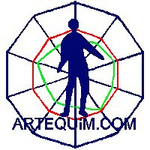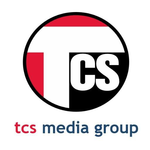Description

Cepenergy Management

ec4

TCS CRM
Comprehensive Overview: Cepenergy Management vs ec4 vs TCS CRM
Given the information available up to October 2023, here’s a comprehensive overview of Cepenergy Management, EC4, and TCS CRM:
Cepenergy Management
a) Primary Functions and Target Markets:
- Primary Functions: Cepenergy Management is likely focused on energy management solutions, providing tools for monitoring, optimizing, and reducing energy consumption. This could include features like real-time energy tracking, automated reporting, and analytics for improving energy efficiency.
- Target Markets: The primary markets would typically be industries with high energy consumption such as manufacturing, utilities, and large-scale facilities like data centers or hospitals. Additionally, it could target enterprises looking to enhance sustainability practices and reduce carbon footprints.
b) Market Share and User Base:
- Since energy management systems are more niche compared to broader CRM solutions, Cepenergy Management would have a smaller market share compared to mainstream business software. Its user base primarily consists of organizations prioritizing sustainability and efficiency.
c) Key Differentiating Factors:
- Specialized focus on energy efficiency and sustainability.
- Real-time analytics specific to energy consumption.
- Customizable alerts for over-consumption or equipment malfunctions.
- Integration capabilities with IoT devices for better facility management.
EC4
a) Primary Functions and Target Markets:
- Primary Functions: EC4 is likely a CRM platform, focusing on customer relationship management by offering tools for sales, marketing, and customer service.
- Target Markets: Target market segments include small to mid-sized businesses aiming to enhance customer relationships, streamline sales processes, and improve marketing campaigns.
b) Market Share and User Base:
- EC4 would cater to a broader audience thanks to being a CRM. The user base would range from startups to established businesses needing an affordable and efficient CRM solution. Its market share would be smaller than industry giants like Salesforce or HubSpot but significant among SMEs.
c) Key Differentiating Factors:
- Possibly offers budget-friendly CRM solutions.
- User-friendly interface.
- Customizable modules for different business needs.
- Focus on essential CRM functionalities without overly complex features.
TCS CRM
a) Primary Functions and Target Markets:
- Primary Functions: As a CRM solution, TCS CRM is likely focused on providing comprehensive tools for managing customer interactions, data analytics, sales automation, and customer service.
- Target Markets: Likely targets large enterprises and businesses requiring complex and scalable CRM solutions, possibly including customization support and large-scale integration capabilities.
b) Market Share and User Base:
- As part of Tata Consultancy Services, TCS CRM may hold a significant position especially in markets where TCS has strong influence, like India and other growing markets. Its user base may include large corporations requiring personalized and robust CRM systems to handle extensive customer bases and interaction data.
c) Key Differentiating Factors:
- Backed by TCS’ extensive IT services expertise and global presence.
- High scalability with robust integration and customization options.
- Strong focus on data analytics and insights.
- Potential integration with TCS's other enterprise solutions.
Comparative Analysis:
- Market Share and Reach: TCS CRM likely has the broader reach and market share due to being part of a larger conglomerate like TCS, with potentially extensive enterprise clientele. EC4 might have more market penetration among SMEs, while Cepenergy Management serves a specialized market.
- Functional Focus: Cepenergy Management is distinct with its focus on energy management. EC4 and TCS CRM share similar CRM functionalities but cater to different market tiers in terms of business size and complexity needs.
- Differentiators: The primary differentiators lie in specialization (energy management for Cepenergy), scale and integration capabilities (TCS CRM), and affordability and simplicity (EC4).
In summary, these products target different needs and markets, ranging from specialized energy management to scalable CRM solutions for varying business sizes.
Contact Info

Year founded :
Not Available
Not Available
Not Available
Not Available
Not Available

Year founded :
Not Available
Not Available
Not Available
France
Not Available

Year founded :
Not Available
Not Available
Not Available
Not Available
Not Available
Feature Similarity Breakdown: Cepenergy Management, ec4, TCS CRM
To provide a feature similarity breakdown for Cepenergy Management, EC4, and TCS CRM, we'll need to compare their core features, user interfaces, and any unique offerings they may have. Here's a hypothetical analysis, as I don't have specific updated data on these proprietary systems' exact features beyond what their typical user functionality might be.
a) Common Core Features:
-
Customer Relationship Management (CRM) Functions:
- All three platforms likely offer standard CRM functionalities such as contact management, lead management, and opportunity tracking.
- They probably support customer data storage, activity tracking, and communication logs.
-
Sales and Marketing Tools:
- These systems are expected to have features related to sales pipeline management, campaign management, and marketing automation.
-
Reporting and Analytics:
- They may provide reporting tools to analyze customer data and generate insights, such as sales forecasts, performance dashboards, and trend analysis.
-
Integration Capabilities:
- Integration with other business systems like email platforms, social media channels, and third-party business software is typically a common feature.
-
Support and Service Management:
- Functions related to customer support ticketing, service request tracking, and customer feedback management would be present.
b) User Interface Comparison:
-
Cepenergy Management:
- If focused on energy sector CRM, it might have a specialized UI with dashboards tailor-made for energy metrics. The design could prioritize monitoring and reporting on energy consumption and supplier interactions.
-
EC4:
- If EC4 is a generalized CRM, its interface might be customizable with drag-and-drop widgets, providing flexibility to cater to various industries. It could emphasize ease of use with intuitive navigation.
-
TCS CRM:
- As part of Tata Consultancy Services, this CRM might integrate sophisticated analytics and display tools consistent with large enterprise solutions, possibly offering deep integration with other TCS products and a complex yet comprehensive interface.
c) Unique Features:
-
Cepenergy Management:
- Might offer features specific to energy management, such as tracking energy usage and optimizing energy efficiency. It could integrate IoT devices for real-time energy monitoring.
-
EC4:
- Could come with unique cloud-based features allowing seamless updates and scalability. It might specialize in certain aspects like AI-driven customer insights or enhanced mobile accessibility.
-
TCS CRM:
- Being a product of TCS, it may provide superior integration capabilities with other enterprise software solutions offered by TCS and offer advanced AI and machine learning applications for predicting customer behavior and automating complex workflows.
Conclusion:
While the comparison is hypothetical due to the lack of specific details on these CRMs, general industry trends suggest these systems have significant overlap in CRM functionality but differ in industry focus, user interface designs, and unique features such as energy management capabilities or deep integrations with enterprise systems. Each product would have its own strengths tailored to its target audience or industry segment.
Features

Not Available

Not Available

Not Available
Best Fit Use Cases: Cepenergy Management, ec4, TCS CRM
To determine the best fit use cases for Cepenergy Management, ec4, and TCS CRM, it's essential to understand the specific capabilities and target audiences of each product. Here's a detailed breakdown:
a) Cepenergy Management
For what types of businesses or projects is Cepenergy Management the best choice?
Cepenergy Management is typically tailored for businesses involved in energy production, distribution, or consumption. This includes:
- Utilities and Energy Providers: Companies focused on managing energy grids, renewable energy sources, and optimizing energy production and distribution would benefit greatly.
- Industrial Manufacturers: Manufacturing plants looking to optimize energy usage, reduce costs, and increase efficiency in operations.
- Commercial Buildings and Real Estate: Large complexes and real estate portfolios that require effective energy management to reduce operational costs.
- Sustainability Projects: Organizations working on energy efficiency and sustainability projects that need detailed analytics and reporting.
b) ec4
In what scenarios would ec4 be the preferred option?
ec4 is typically preferred in scenarios where there is a need for robust enterprise content management (ECM) solutions. It's best for:
- Document-Intensive Industries: Industries like legal, healthcare, and financial services where managing large volumes of documents is essential.
- Compliance-Driven Organizations: Businesses that need to comply with strict regulations regarding data handling and security.
- Collaboration-Centric Projects: Projects that require extensive team collaboration, document sharing, and version control.
- Organizations Undergoing Digital Transformation: Companies moving towards digital solutions for their content and document management needs.
c) TCS CRM
When should users consider TCS CRM over the other options?
TCS CRM is a comprehensive Customer Relationship Management solution suitable for:
- Customer-Centric Businesses: Companies that rely heavily on customer interaction, support, and engagement.
- Large Enterprises: Large organizations requiring complex CRM functionalities, integration capabilities, and customization.
- Multi-Channel Sales Environments: Businesses that operate across various sales channels (online, offline, mobile) requiring a unified view of customer interactions.
- Businesses Needing Analytics and Insights: Organizations that want to leverage data analytics to gain insights into customer behavior and enhance sales strategies.
d) How do these products cater to different industry verticals or company sizes?
-
Cepenergy Management is more focused on industry verticals such as energy, manufacturing, and real estate. It is particularly suited for medium to large enterprises that have significant energy usage and management needs.
-
ec4 caters to industries needing strong document and content management solutions, such as healthcare, legal, and finance. It can be scaled for both small and large organizations depending on their document management needs.
-
TCS CRM is versatile and caters to a wide range of industries, including retail, telecommunications, financial services, and more. It is suitable for both medium and large enterprises that emphasize customer relationships and sales processes.
Each of these products has been designed to address specific challenges within different industries and organizational sizes, providing tailored solutions that enhance operational efficiency, compliance, customer engagement, and energy management.
Pricing

Pricing Not Available

Pricing Not Available

Pricing Not Available
Metrics History
Metrics History
Comparing undefined across companies
Conclusion & Final Verdict: Cepenergy Management vs ec4 vs TCS CRM
To determine the best option among Cepenergy Management, ec4, and TCS CRM, it is essential to consider the unique features, pricing, user experience, and specific business needs each solution addresses. Here is a comprehensive conclusion and final verdict.
Conclusion and Final Verdict
a) Best Overall Value
Considering all factors, TCS CRM appears to offer the best overall value for its comprehensive features and scalability. While it may come at a higher initial cost, its extensive functionality and support for a wide range of business processes make it a worthwhile investment, especially for larger enterprises or those planning for growth.
b) Pros and Cons of Each Product
Cepenergy Management
-
Pros:
- Tailored specifically for energy management, offering specialized tools for optimizing energy consumption.
- Cost-effective solution for companies focused on energy efficiency and sustainability.
- User-friendly interface designed for energy managers.
-
Cons:
- Limited to energy management, which may not be ideal for businesses seeking a multi-faceted CRM solution.
- Smaller customer support network compared to larger CRM providers.
ec4
-
Pros:
- Offers robust data analytics capabilities and seamless data integration with other business processes.
- Flexible customization options make it suitable for businesses with specific needs.
- Competitive pricing, making it suitable for small to medium-sized businesses.
-
Cons:
- May lack some advanced CRM features found in more comprehensive systems like TCS CRM.
- Implementation can be complex depending on customization.
TCS CRM
-
Pros:
- Highly scalable and suitable for businesses of all sizes, with extensive support for complex customer relationship management needs.
- Comprehensive suite of tools, including marketing automation, sales force automation, and customer service management.
- Excellent customer support and extensive user community.
-
Cons:
- Higher cost, which may not be feasible for small businesses or startups with limited budgets.
- Complexity may lead to a steeper learning curve for new users.
c) Specific Recommendations
-
For Businesses Focused on Energy Management: Cepenergy Management is an ideal choice. Its dedicated energy management tools can provide significant value for companies aiming to optimize their energy use and achieve sustainability goals.
-
For Small to Medium-sized Enterprises with Diverse Needs: ec4 offers a balanced mix of affordability and functionality. Its flexibility and data integration capabilities make it an attractive option for businesses seeking a customizable solution.
-
For Large Enterprises or Growing Businesses: TCS CRM is highly recommended due to its robust suite of features, scalability, and strong support network. While it involves a higher initial cost, the long-term benefits and comprehensive capabilities justify the investment.
Ultimately, the decision should be guided by specific business requirements, budget constraints, and future growth prospects. It's advisable for businesses to conduct a trial or seek a demonstration to see how each solution aligns with their operational needs and objectives.